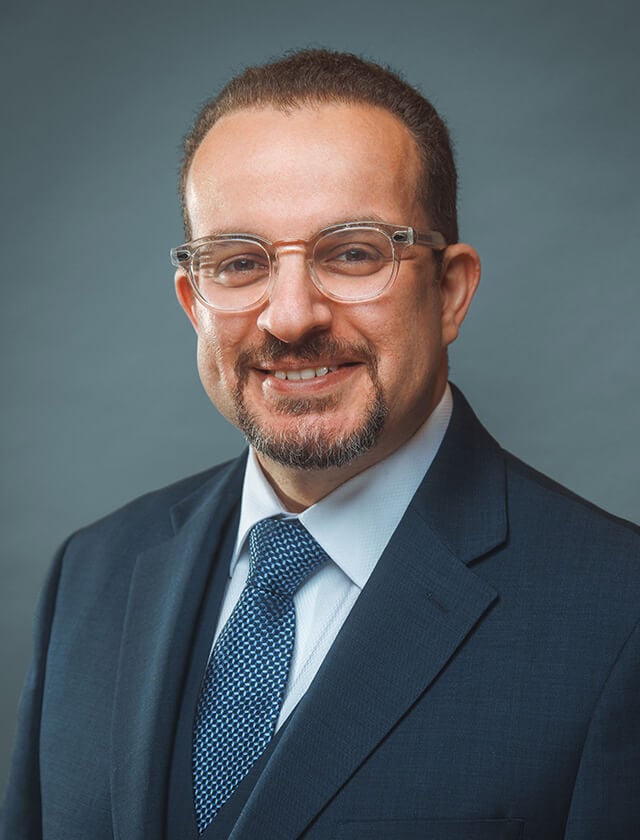If you're experiencing headaches after a head or neck injury, you may be suffering from a condition known as post-traumatic headaches. A post-traumatic headache (PTH) usually develops within two months of an injury and is considered a symptom of post-concussive syndrome (symptoms that occur after a mild traumatic brain injury).

Understanding Post-Traumatic Headaches (PTH)

What is a Post-Traumatic Headache?
Symptoms
Post-traumatic headaches and migraines are two different types of headaches that can have some overlapping symptoms, but they have distinct causes and characteristics. Migraines are a type of headache characterized by severe, throbbing pain that is often accompanied by other symptoms such as nausea, vomiting, sensitivity to light and sound, and visual disturbances. Because a PTH results from a traumatic head or neck injury, headache pain may be accompanied by other concussive symptoms, including:
- Fatigue
- Vision issues
- Confusion
- Dizziness
- Trouble with balance
- Difficulty concentrating
Causes
Post-traumatic headaches can be caused by a variety of factors, including swelling or inflammation in the brain, damage to the blood vessels or nerves in the head, or changes in brain chemistry.
Risk Factors
Some factors that may increase the risk of developing post-traumatic headaches include:
- Severity of the head injury: More severe head injuries, such as those that result in a concussion or skull fracture, are more likely to cause post-traumatic headaches.
- Age: Children and older adults may be more susceptible to developing post-traumatic headaches after a head injury.
- History of headaches: People who have a history of headaches, especially migraines, may be more prone to developing post-traumatic headaches.
- Previous head injuries: Having a history of head injuries may increase the risk of developing post-traumatic headaches.
- Certain medical conditions: Certain medical conditions, such as diabetes and high blood pressure, may increase the risk of post-traumatic headaches.
Diagnosing Post-Traumatic Headaches
To diagnose post-traumatic headaches, a healthcare provider will typically ask about the timing and duration of the headache, the location and quality of the pain, and any other symptoms that may be present. They may also ask about the specifics of the head injury, such as the cause of the injury, the severity of the injury, and any symptoms that were present immediately after the injury.
In addition to taking a thorough history, a healthcare provider may also conduct a physical examination to check for signs of a head injury, such as swelling, bruising, or abnormalities in the neck or cranial nerves. They may also order imaging tests, such as an MRI or CT scan, to rule out other potential causes of the headache, such as a brain tumor or an aneurysm.
Post-Traumatic and Migraine Headaches Treatment
Treatment options for post-traumatic headaches will depend on the nature of the pain and injury. For mild cases of PTH, your doctor may prescribe medications or therapies. In most cases, patients will begin on general anti-inflammatory and pain management medications. If you have persistent post-traumatic headaches, your doctor may also recommend additional prescriptions, such as anti-seizure, blood pressure, or antidepressant medications.
Additional Therapies
A combination of treatments, including cognitive-behavioral therapy (CBT), biofeedback, progressive muscle relaxation therapy, acupuncture, and physical therapy, can also help alleviate symptoms.
Nerve Block
A nerve block can be used as a diagnostic tool and treatment option for nerve-related conditions and injuries. A nerve block is an injection administered at the site of nerve damage to temporarily block pain signals between a nerve and the brain. By disrupting pain signals, a nerve block can alleviate symptoms for a short amount of time, allowing your doctor to diagnose a possible nerve-based cause for your pain.
Nerve Decompression Migraine Surgery
At the Institute for Advanced Reconstruction, we have treated many patients with post-traumatic headaches and have found a high rate of success after nerve decompression surgery. Nerve decompression surgery reduces pressure on nerves from nearby muscles or tissues. The surgeon will remove the tissues and muscles that are compressing the affected nerves and then pad the area with fat to prevent future compression from reoccurring.
Nerve decompression surgery is typically an outpatient procedure done under general anesthesia. It can take one to four hours to complete. Most patients can return to work in 2 to 3 weeks time after a nerve decompression surgery for migraines and other headaches.
Our Doctors
At the Institute for Advanced Reconstruction, we believe that post-traumatic headaches should be treated as a unique condition, not like a typical migraine headache. Our surgeons have used nerve decompression surgery as an effective treatment option to help our clients reduce or even eliminate headache pain after an accident or injury.
Patient Stories
Find Migraine Surgery Near Me
Insurance Information
The Institute for Advanced Reconstruction participates in a wide range of insurance plans, including those listed below. However, each physician has their own accepted insurance and hospital affiliations. Before scheduling an appointment, please contact your insurance carrier to confirm that your provider is in-network.
If we are not an in-network provider, our friendly insurance specialists will help you find the most coverage available for your treatment.
- Horizon Blue Cross Blue Shield of New Jersey
- Medicare
- Railroad Medicare
- Aetna
- Cigna
- United Healthcare
- Oxford (Freedom, Liberty)
- MagnaCare
Patient Resources
Learn more about what to expect when it comes to surgical procedures and treatments at the Institute for Advanced Reconstruction by visiting our patient resource page.
Am I a candidate for migraine surgery?
If you have persistent or chronic headaches that began following a traumatic neck or head injury and are not responding well to medications or other treatments you may be a candidate for migraine surgery. Schedule an appointment today to find out if our post-traumatic headache treatments are the right solution for your head and neck pain.

.webp)


